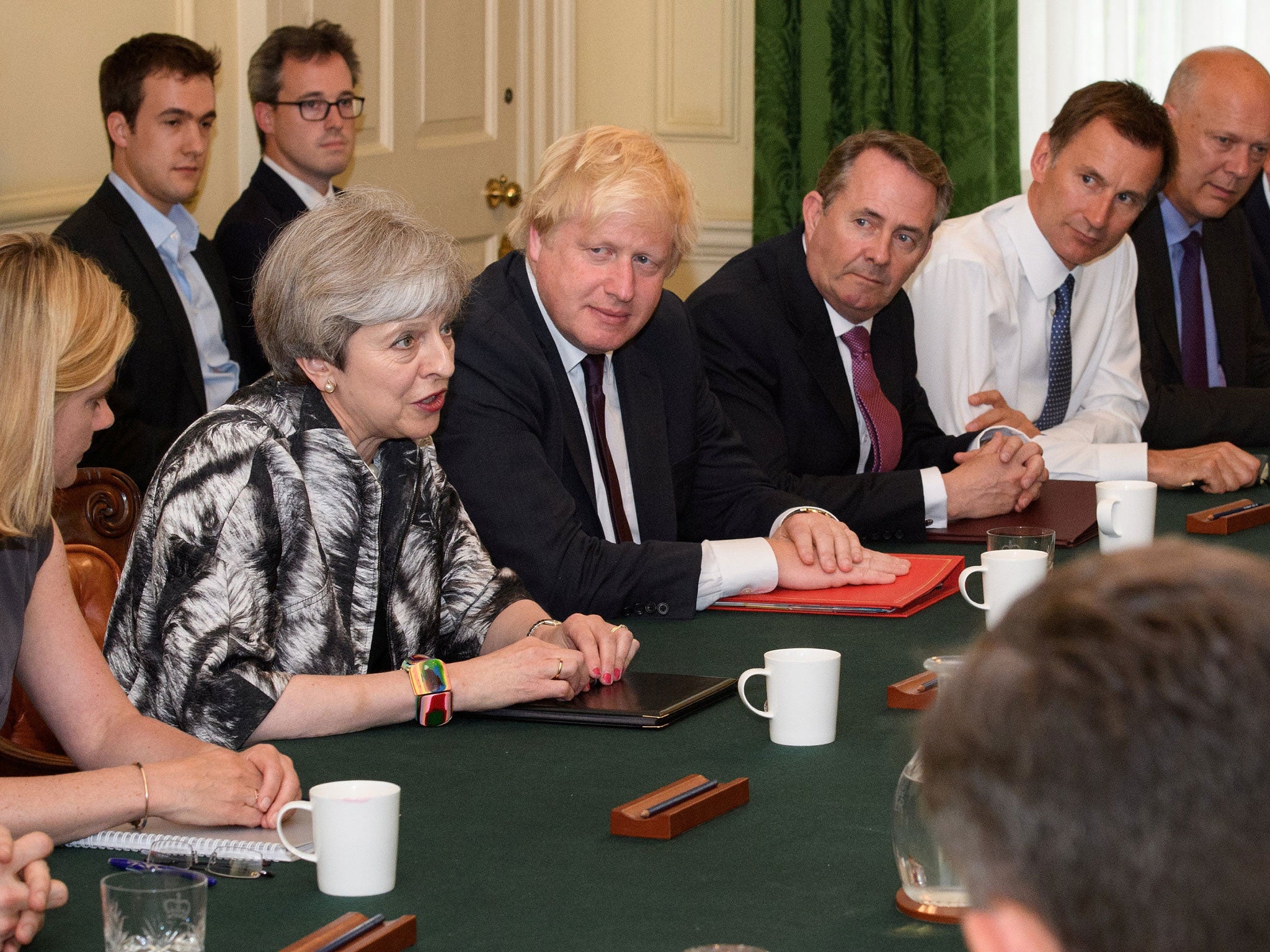Labour and Conservatives 'enter secret talks to secure softer Brexit'
Theresa May under increasing pressure ahead of talks with EU following loss of Commons majority

Your support helps us to tell the story
From reproductive rights to climate change to Big Tech, The Independent is on the ground when the story is developing. Whether it's investigating the financials of Elon Musk's pro-Trump PAC or producing our latest documentary, 'The A Word', which shines a light on the American women fighting for reproductive rights, we know how important it is to parse out the facts from the messaging.
At such a critical moment in US history, we need reporters on the ground. Your donation allows us to keep sending journalists to speak to both sides of the story.
The Independent is trusted by Americans across the entire political spectrum. And unlike many other quality news outlets, we choose not to lock Americans out of our reporting and analysis with paywalls. We believe quality journalism should be available to everyone, paid for by those who can afford it.
Your support makes all the difference.Labour and Conservative MPs have reportedly met for secret talks amid growing pressure on Prime Minister Theresa May to take a cross-party approach to Brexit in light of the hung Parliament following the general election.
Ms May, who is working to form a minority government with support from the Democratic Unionist Party (DUP), is being urged by many Labour MPs and some members of her own Cabinet to pursue a so-called soft Brexit, where concessions could be made for access to the single market.
Scottish Conservatives' leader Ruth Davidson, whose influence has increased dramatically with the election of 13 Tories north of the border, has broken party ranks to say: “This isn't just going to be a Tory Brexit”.
Ms May's weakened position in the Commons as a result of spectacularly losing her majority has fuelled speculation the Tories will be forced to alter their approach to the Brexit negotiations.
The Evening Standard, edited by former Tory chancellor George Osborne, and the Daily Telegraph, both reported that Cabinet ministers have initiated talks with Labour MPs to secure cross-party backing for a softer Brexit which puts business interests front and centre.
A senior, unnamed minister is quoted as having told the Standard: “This is no longer a question just for Government. It is clear to me that Parliament will want to assert its role in a way it did not before.”
After attending the Prime Minister's Cabinet meeting on Monday, Ms Davidson told BBC News: “I'm suggesting that the Conservative Party works with those both within the House of Commons and with people without to ensure that as we leave the EU, we have a Brexit that works for the economy and puts that first.
”There was a real sense around the Cabinet table today, as you would expect from centre right politicians, that that is the primacy we're looking for.“
Ms Davidson suggested the Government may shift its priority from cutting immigration to ensuring a good deal for business and the economy.
After Mrs May addressed the 1922 Committee of backbench Tory MPs on Monday, some of those present suggested the PM would consult more with business ahead of the talks, scheduled to begin next week.
Ms Davidson added: ”We do have to make sure that we invite other people in now. This isn't just going to be a Tory Brexit, this is going to have to involve the whole country.
“We can make a big, bold offer that brings the country with us, that brings people in from the other side of the aisle in the House of Commons, but also brings people in from outside the Commons too.”
Brexit Secretary David Davis revealed that discussions on the terms of the UK's exit package from the EU might have to be postponed from the scheduled start date of 19 June to allow more time for the Government to prepare.
He hinted there might be compromises over the Great Repeal Bill and human rights, but maintained that leaving the single market and customs union were “fundamentals”.
“If people can think of elements that are better and negotiable, I am listening,” he said.
He conceded parts of the Tory manifesto would be “pruned” following the unexpected loss of the party’s Commons majority.
The Conservatives’ past divisions over Europe could flare up again in the fall-out from the general election.
Ardent Brexiteers, who include Liam Fox, Priti Patel and Chris Grayling, have not softened their stance and are still willing to quit the EU without a deal rather than with one which they believe is not in the best interests of the UK.
Some Brexiteer MPs are believed to have made their position clear ahead of the meeting of the 1922 Committee of backbenchers, insisting their support for Ms May depends on her sticking to her manifesto commitment to quit the European single market.
A few centrist Labour MPs have said they would be willing to put party differences aside to work to get the best Brexit deal for the country, which they believe should include continued membership of the single market or the customs union.
Former shadow business secretary Chuka Umunna said Ms May would need cross-party support “beyond the DUP” in order to get the best possible deal for the whole of the UK.
Conservatives who were pro-Remain and now favour a “softer” Brexit are believed to include Damian Green, who is effectively Deputy Prime Minister following the Cabinet reshuffle, Chancellor Philip Hammond and Ms Davis.
Mr Hammond is making the annual Mansion House speech on Thursday, which some soft-Brexiteers hope will clarify the Government’s approach ahead talks with the EU. Article 50 was triggered in March, giving the UK two years to negotiate the terms of its divorce from the 28-state block.
Join our commenting forum
Join thought-provoking conversations, follow other Independent readers and see their replies
Comments